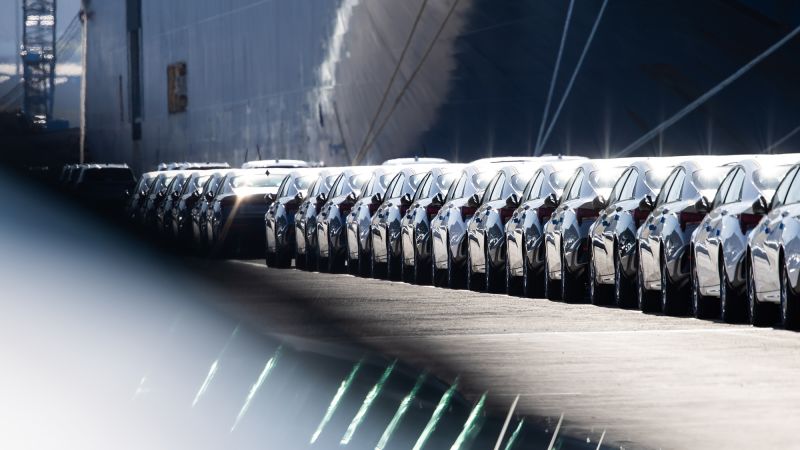
## Hyundai’s Massive US Investment: A Game Changer for American Manufacturing?
Hyundai, the South Korean automotive giant, is making a bold move, announcing a staggering $20 billion investment in the United States. This isn’t just another expansion; it’s a significant commitment to on-shoring, bringing manufacturing and production back to American soil. The ripple effects of this decision could be profound, reshaping the American manufacturing landscape and potentially impacting several key sectors.
The centerpiece of this ambitious plan is a brand-new, $5 billion steel plant slated for construction in Louisiana. This is a crucial element, directly addressing the challenges of securing a reliable and cost-effective domestic supply of steel, a critical component in automotive manufacturing. For years, the US has relied heavily on imported steel, leaving it vulnerable to global price fluctuations and supply chain disruptions. Hyundai’s investment tackles this head-on, creating a more resilient and self-sufficient supply chain within the US.
Beyond the steel plant, the remaining $15 billion will likely be dispersed across various projects. We can anticipate substantial investments in other manufacturing facilities, potentially encompassing everything from vehicle assembly plants to battery production for electric vehicles. The details are still unfolding, but this significant capital injection suggests Hyundai is envisioning a long-term presence in the US, aiming for complete vertical integration of their operations. This contrasts with the previous model where many components were imported, potentially contributing to higher production costs and increased vulnerability to external factors.
This investment holds immense potential for job creation across numerous states. The Louisiana steel plant alone will create thousands of well-paying jobs, and the broader investment will likely generate employment opportunities across the entire supply chain – from engineering and construction to transportation and logistics. This is a welcome boost to the American economy, particularly in regions that may be experiencing economic hardship or a decline in traditional manufacturing industries.
However, the implications extend beyond immediate job creation. Hyundai’s commitment signals a shift in global manufacturing strategies. It’s a vote of confidence in the American market, suggesting a belief in the stability of the economy and the skilled workforce available in the United States. This could encourage other international companies to reconsider their manufacturing strategies and invest in domestic production, triggering a broader wave of on-shoring and revitalizing American industry.
Of course, the success of this ambitious plan depends on several factors. Infrastructure support from the government will be crucial, including ensuring access to reliable energy sources and efficient transportation networks. Furthermore, the successful training and recruitment of a skilled workforce will be vital for the smooth operation of the new facilities. Any potential regulatory hurdles or labor disputes could also impact the project’s timeline and overall success.
Despite these challenges, Hyundai’s $20 billion investment represents a significant development in the American manufacturing landscape. This bold move could potentially spark a resurgence in domestic production, create thousands of jobs, and strengthen the US’s position in the global automotive industry. The coming years will be pivotal in observing the full impact of this monumental investment and whether it truly serves as a catalyst for broader on-shoring efforts across other sectors.



Leave a Reply